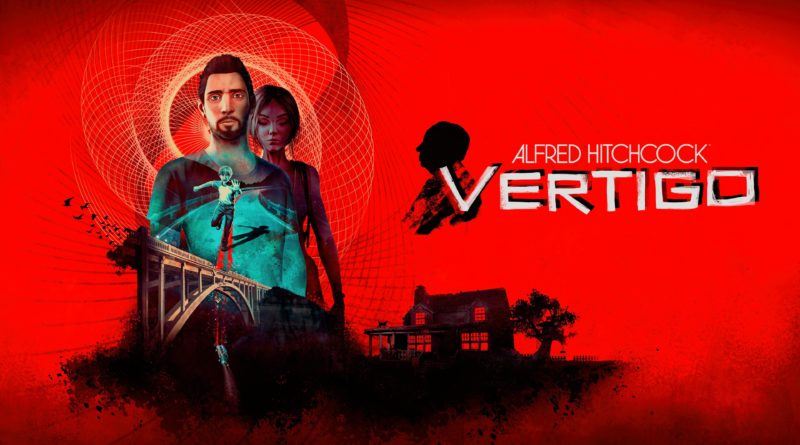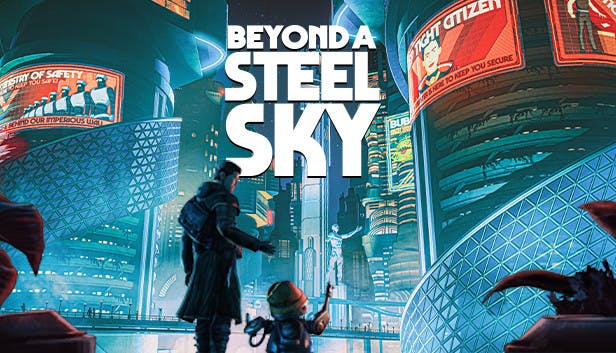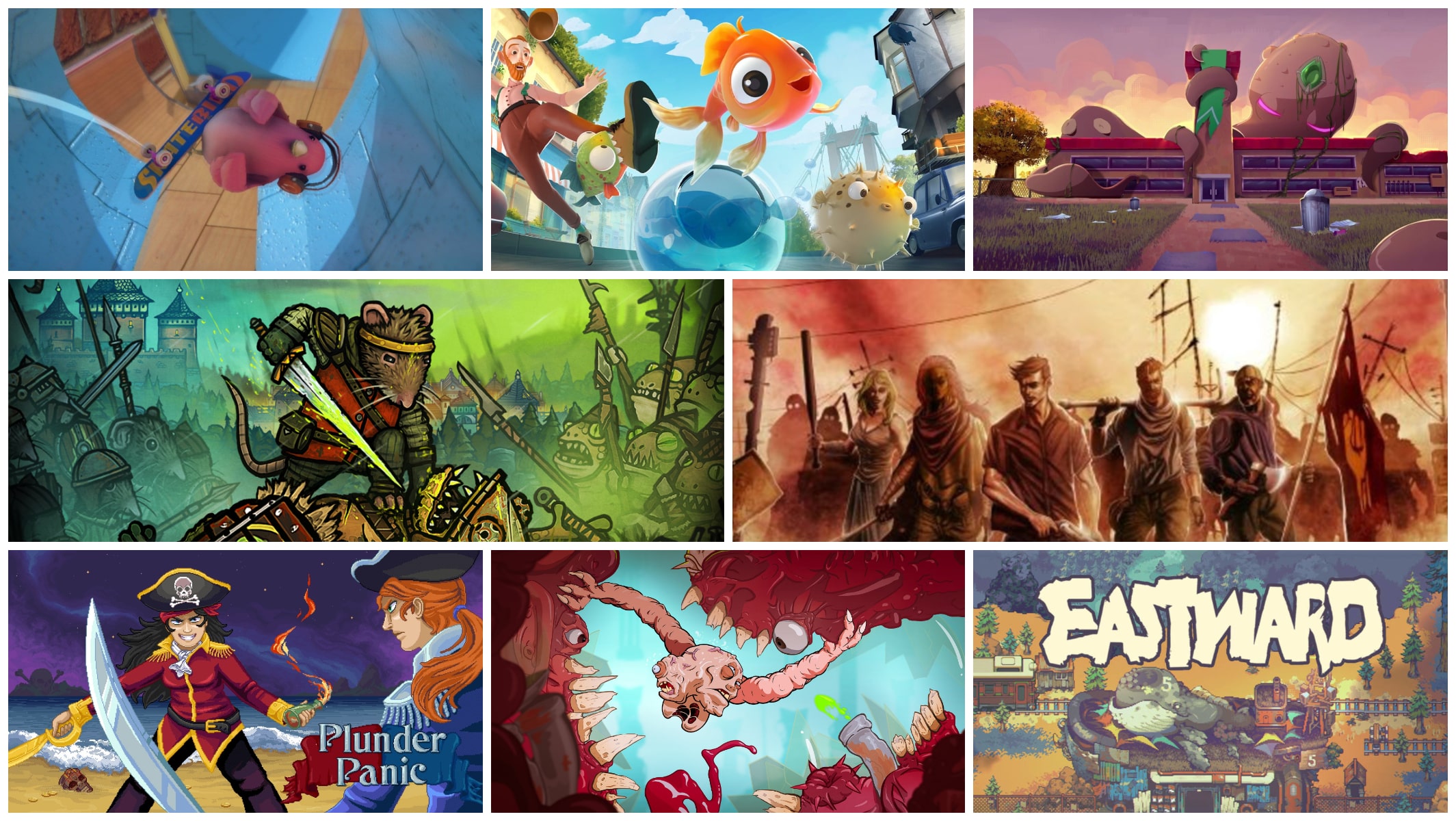Alfred Hitchcock Vertigo Review (PS5) – A Downward Spiral
Murder, obsession, mystery. Alfred Hitchcock – Vertigo releases on consoles 27th September, but is it one to obsess over? The Finger Guns review:
Alfred Hitchcock Vertigo isn’t a gamified remake of the 1958 Hitchcock classic, nor is it a gamified remake of the 2004 U2 classic. Instead, it’s an original narrative adventure that takes huge cues from the movie thematically and visually. Originally released on PC (Steam) last year, it’s now found its way over to console.
Pendulo Studios are known for their narrative driven games, so it must have been a huge undertaking to make a game worthy of the Hitchcock brand – and like Hitchcock – the Vertigo game may be polarising. Mentioned as a favourite of one of his films, Alfred Hitchcock’s Vertigo was panned by critics and notably disliked by Orson Welles. Whether it’s a moment of manufactured genius or a coincidence, Vertigo became an obsession. This game has room for that similar obsession if you can look past some of its flaws.
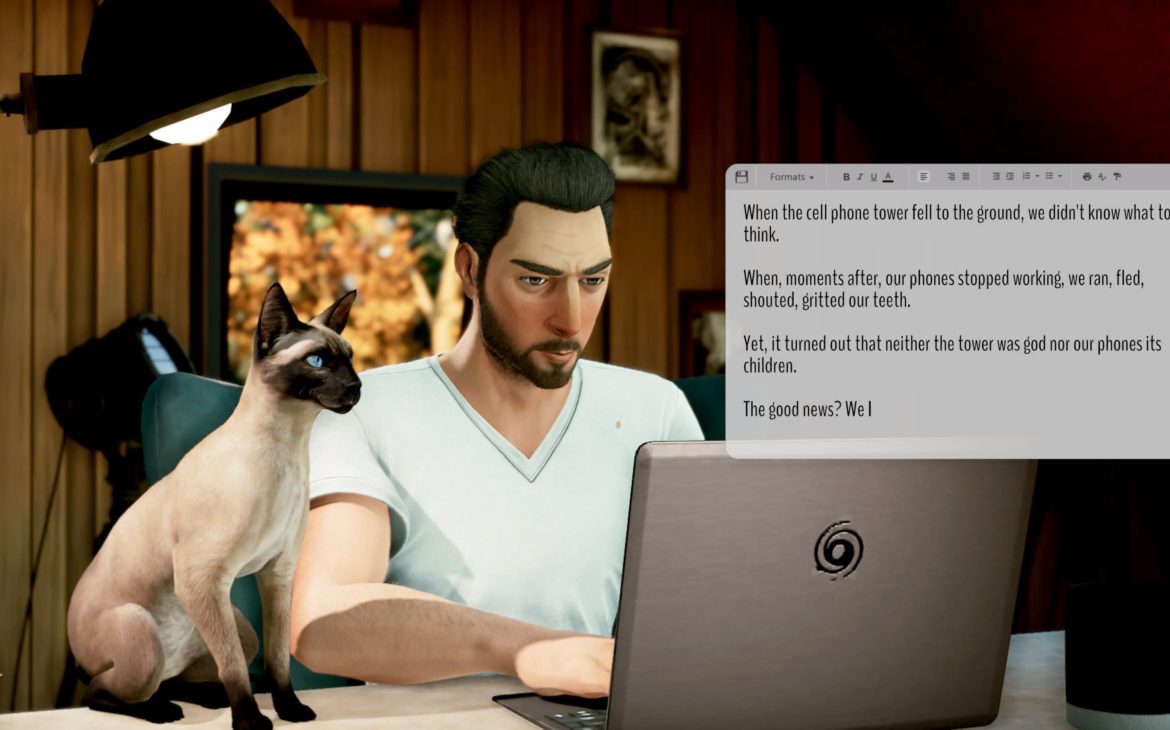
Funeral March Of Marionette
I would like to quickly warn anyone reading that there may be some trigger warnings ahead; themes of suicide, mental health, violence and sexual deviance are contextually exploited in the game. Whilst themes of this nature are seen in a lot of media – the drawn-out actions in certain instances and even problem solving with the exploitative nature of these themes is one to bring up. It’s heavy going, and although it’s not egregious, it came as a surprise during my playthrough. The quality of the story isn’t diminished by said themes, I think Pendulo Studios haven’t taken it lightly when developing the narrative to include them.
The story takes place through multiple timelines, following a slew of characters. At the centre of it all is Ed Miller. Miller awakes in the middle of the road, with his car at the bottom of a cliff; he spots a man he seemingly thinks is his father about to jump off a bridge nearby. Chasing after him, Ed is too late and without hesitance attempts to follow the same fate. He suddenly experiences Vertigo whilst atop the bridge, and before he can jump he’s saved by a passer-by.
Now bed bound by his unexplainable new diagnosis of Vertigo, and convinced his child and the mother (though there’s no record of their existence) went along with his car – it is up to Dr Julia Lomas to delve into his troubled past to solve the mystery. At the same time, Sheriff Nick Reyes is on a missing persons case for a neighbour of Ed Miller and quickly finds them dead.
Unravelling the mystery, finding red herrings, plot twist after plot twist, all comes at an impeccable pace through most of the game. The playthrough presents the events in non-chronological order, heightening the tension and the questions that were left rattling in my brain. By the end of the story, I think it comes off as a satisfying narrative. With all the stakes set up and all the turns that twist, it’s hard to pull off something that a majority could be happy with; and I think it sticks the landing.
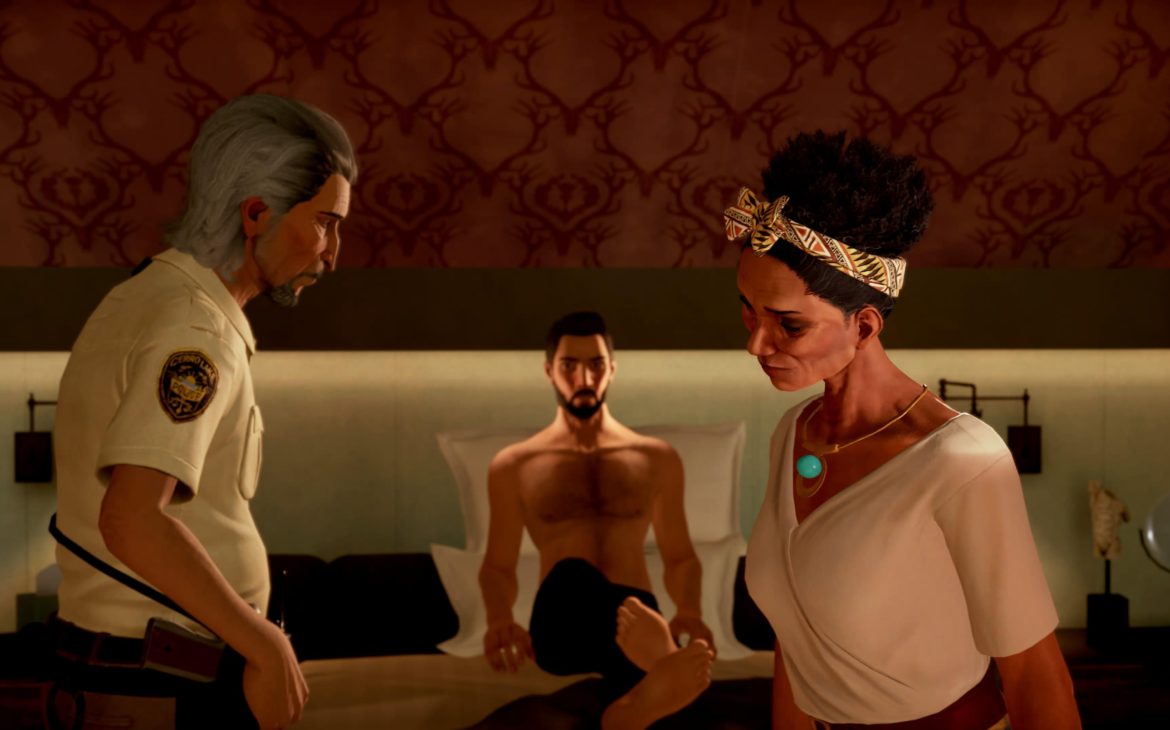
There are multiple choices you can make in the game as well as different dialogue options, but the main narrative stays the same. The choices you make alter a couple of character details, making it feel more personable. When the cards are all supposedly on the table in the final quarter, there’s less intrigue.
Scenes that you play as the antagonist are tough to retrace narratively, as they put you in the shoes of doing bad to heinous things. It extends further than the Scott Shelby plot line in Heavy Rain; in Alfred Hitchcock Vertigo you’re aware of the persons motives and the problem solving to continue puts you firmly in their mental position. At first it brought a scope to the narrative I wasn’t expecting. It even throws some curveballs to catch you off guard. But by the end you kind of get the picture that bad person is bad, why do even worse things that don’t necessarily feed into the current plotlines?
With all that being said, the story and the way in which it’s told is something to praise. The overall ambition of what Pendulo Studios was going for is one not to look past as it tackles tough subjects and does so admirably – all the while serving up a mystery worthy of the Hitchcock name attached to it. Characters are superbly acted, working with a great script that walks a fine line of realism without being too cheesy. Obsession is a toxic trait and like the film, the game explores the theme just as competently.
The obsessive acts turn violent, sexual and the all-consuming nature was palpable during my 12-hour playthrough. It was uncomfortable in certain instances to act it out in real time; as I previously mentioned it’s a retracing of steps you’ve already seen before – but like the movie – the obsessive tendency is to repeat it, over and over. Choosing Vertigo to be a game is a smart decision, becoming an active participant only elevates the themes it’s going for, making it an intense experience.
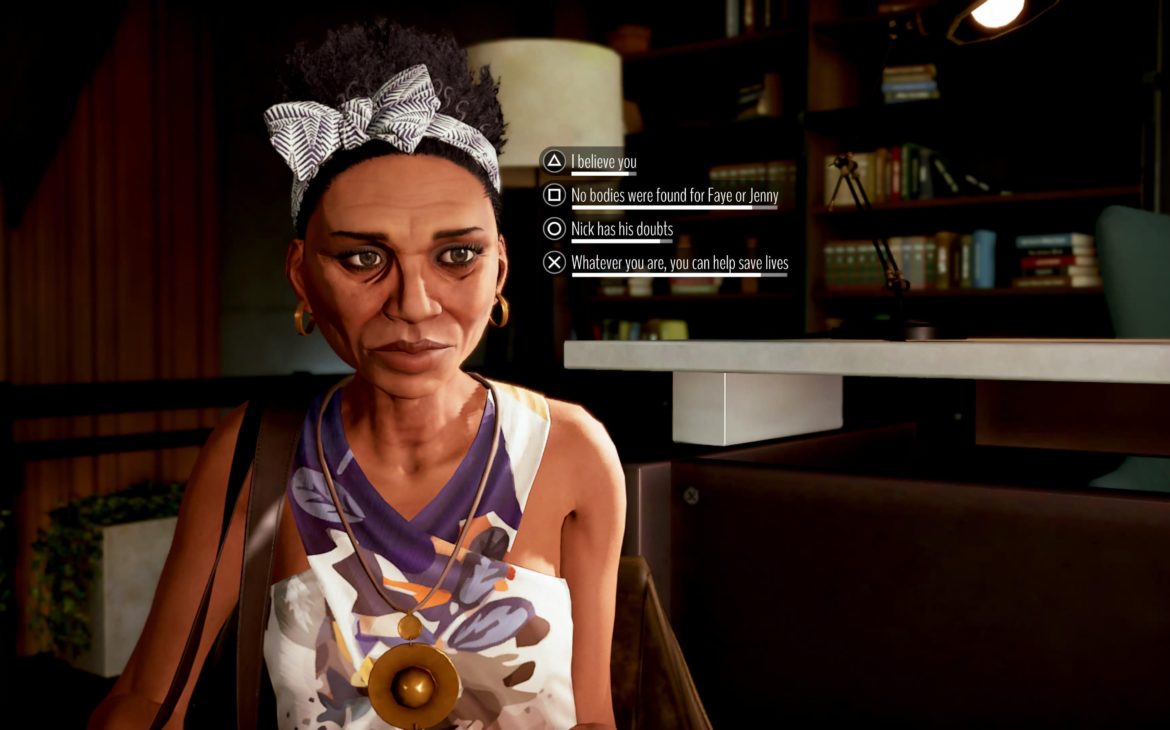
Trapped In A Lizard State
The game is a narrative adventure similarly to the Telltale or Quantic Dream games. You’ll have player urgency controlling pivotal moments of dialogue with some moments also having Quick Time Events (QTE), that corollate with actions you do in the game. The choices in dialogue you make sometimes bring your own personal flair into the narrative, but I often found myself exhausting all choices before being able to move on. This falters the experience of it not necessarily being my story that I make and instead draws out some conversations too long. QTE’s are also confusing as some actions you pull off don’t require any, when some do. The inconsistency was noticeable and during some of the longer scenes I felt more of a passive participant.
Other moments in the game have levels that you can explore at your own pace. You’re normally confined to a room or few, but the varying scope of these explorable parts never felt all too necessary. Like the dialogue, the only way to proceed these parts is to exhaust all options as opposed to choosing your own. Generally, this is fine gameplay wise but the performance stutters – even on performance mode – and the long loading times made going to and from activities a chore. It sometimes felt that it forgot this was a game and sprinkled a little bit of interactivity to make it as such, but I honestly would have been fine with either a deeper emphasis on player urgency or a passive experience. The middling ground Vertigo finds it on, doesn’t make this the best to play despite the experience being worthwhile.
Another aspect of the gameplay is accessing Ed’s memories through hypnosis. The difference in perspective in these scenes play out to how they’re told originally, offering a complex juxtaposition to trauma responses. Thematically and gameplay wise these are the strongest parts to play as delving into the psyche rewards you for your time spent. It really adds to the layers of storytelling that you can’t get outside of games without it feeling too bloated.
A hint system may have been handy for those hard sought after circles of interactables, as some objectives near the back end become vague. Whilst I liked call-backs to previous scenes informing your current task at hand, some of it fell flat by not pointing me in the direction enough. Mechanically the game is sound, although some of the QTE’s involving the sticks don’t inform you on which one to use, and it switches stick often depending on the action. It’s a minor criticism, but one that becomes noticeable when other gameplay elements are lessening the experience.
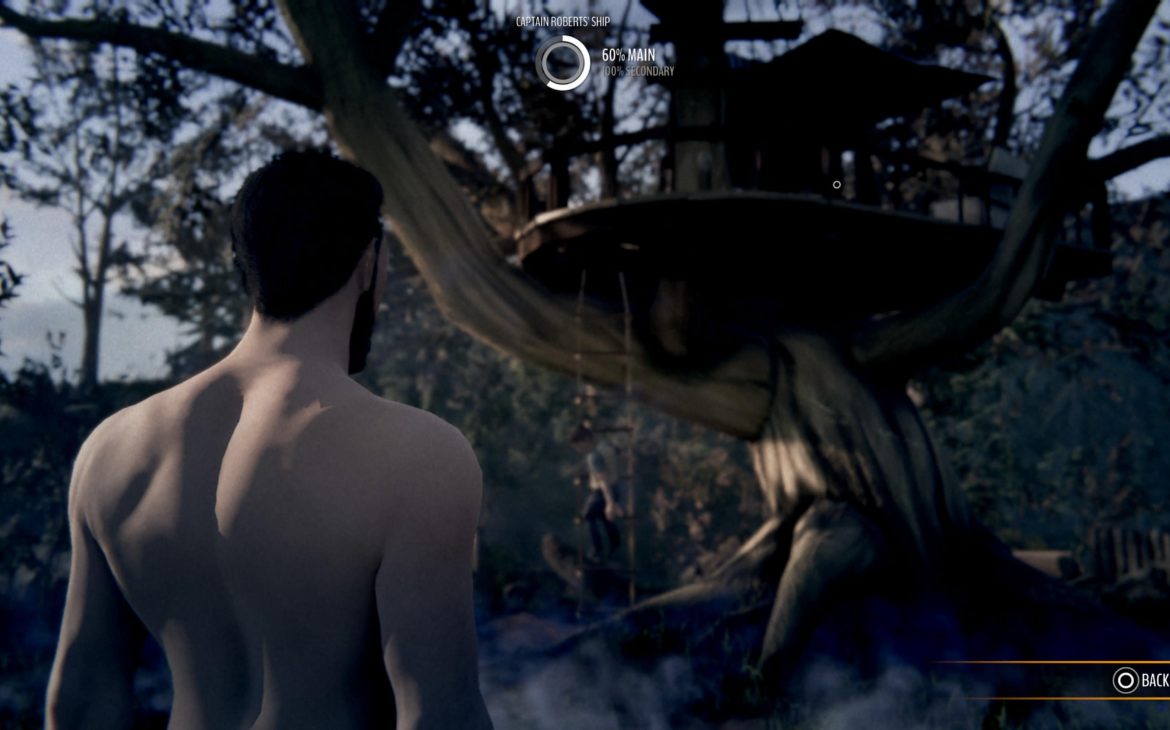
There Is No Terror In The Bang, Only The Anticipation Of It
Pendulo Studios have opted for a Telltale inspired approach to character design. Facial features are bold and distinctive, and eyes that might be too big for my taste. I think the choice of its design is to convey human emotion through these characters, without the expensive tech of facial motion capture. In a lot of aspects, it does work. With the strong acting behind it and a good script to work with, the design is serviceable. Characters would befit the scene stylistically for the most part but in some frames they come off as wild caricatures.
The game has two visual settings on PS5, Performance Mode and Fidelity Mode. I tried both but performance is where I ended up. The locked low frame rate with not much of a graphical improvement wasn’t worth keeping on, especially when the game’s performance would dip. I couldn’t really notice what fidelity did, maybe outside of some more nuanced lighting effects, because the characters and environments looked the same.
The environments of the levels, particularly the more open outdoor ones were great. Coupled with the art direction of these areas, they were pleasant to explore and the most visually eye-catching aspect of the game. There’s a bunch of objects and scenery to interact with that adds depth to the character and setting. The attention put in doesn’t equate to any discovering in the plot though, which is a shame as I’d hoped that my efforts of exploring these environments would unlock certain choices in dialogue or actions.
Thankfully the attached Hitchcock brand means the musical inspiration of Bernard Herrmann – composer of Vertigo 1958 – is in droves. The original soundtrack of the game is helmed by Juan Miguel Martin, who has gone to great lengths to capture the essence of the movie sonically and it feels ripped straight out of a Hitchcock movie. My only complaint would be that the devs must have agreed – the soundtrack is so encapsulating; scenes in the game would be brimming with emotion that’s met with a wave of the soundtrack that doesn’t always match the mood. Separately, these aforementioned moments and music are real highlights that are slightly squandered by the clash of the two. The motifs and Hitchcockian inspirations are seen throughout. Whether it’s the style of direction or down to the use of bold colours enrapturing a character; you can tell there’s love and thorough research done to make a game worthy to share the title of the 1958 movie.

Meet Again Sometime. We Have.
Like the original 1958 movie, this will be a polarising title. Something I can give credit to Pendulo Studios is that they went all in on creating a game worthy of the Hitchcock moniker. For better or worse, this is an enveloping story of obsession, identity and manipulation that keeps you guessing until the very last second. However, the game isn’t without performance issues which take you out of the often heart racing moments.
Alfred Hitchcock Veritgo takes some steps to tell a mature story that has an incredible mystery behind it. Certain parts are difficult to play through due to the subject matter, but if you’re after a narrative adventure that shares thematic depth of cinema, then you’re in for a treat. The gameplay doesn’t compliment the story telling too often and a few performance issues hold it back. However, if you can look past those flaws there’s a unique story to unravel.

Alfred Hitchcock Vertigo is out 27th September 2022 on PlayStation 5 (review platform), Xbox Series S|X, PS4, Xbox One, Nintendo Switch and PC (Steam)
Developer: Pendulo Studios
Publisher: Microids
Disclaimer: In order to complete this review, we were provided with a promotional code from the publisher. For our full review policy, please go here.
If you enjoyed this article or any more of our content, please consider our Patreon.
Make sure to follow Finger Guns on our social channels. Twitter, Facebook, Twitch, Spotify or Apple Podcasts – to keep up to date on our news, reviews and features.
